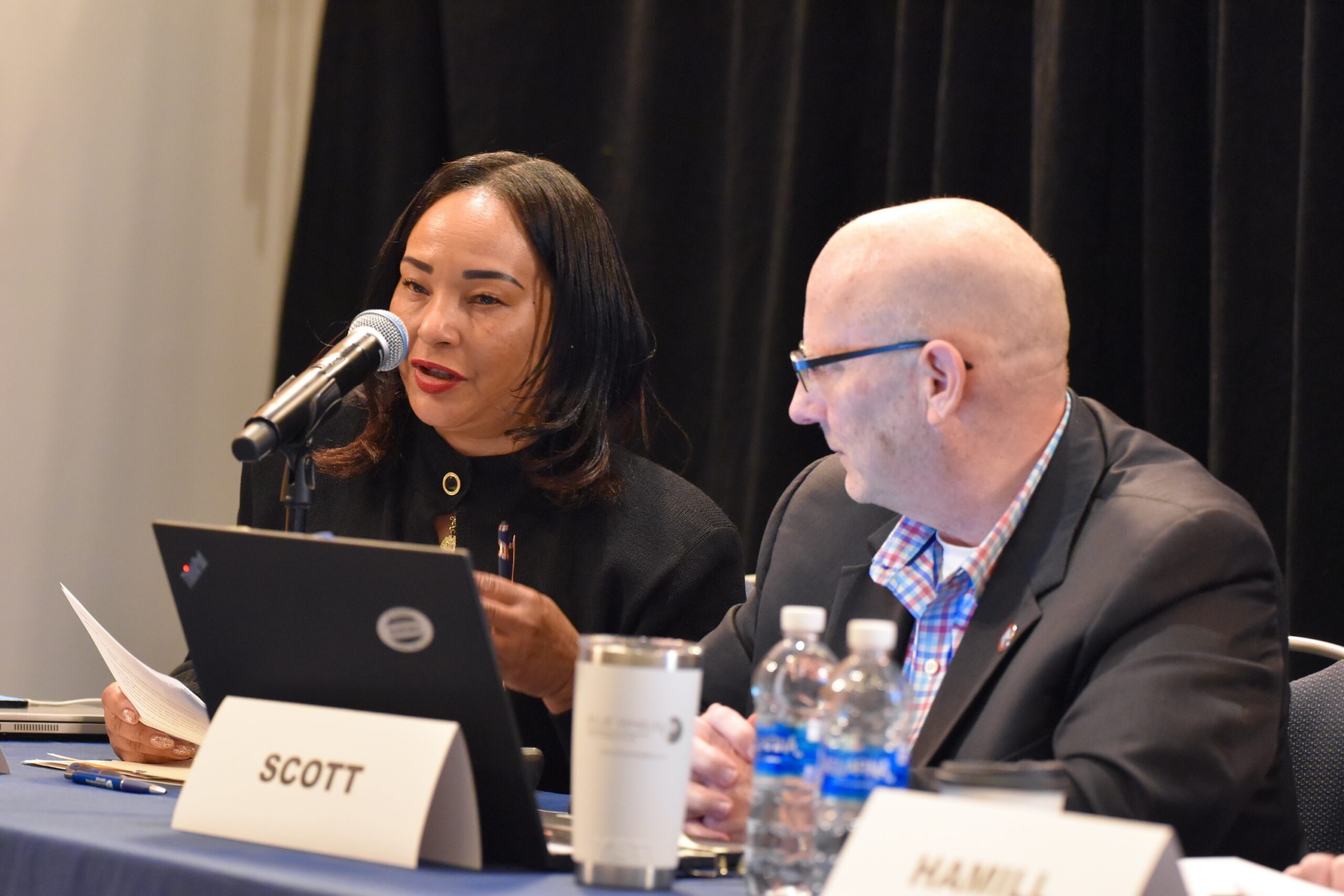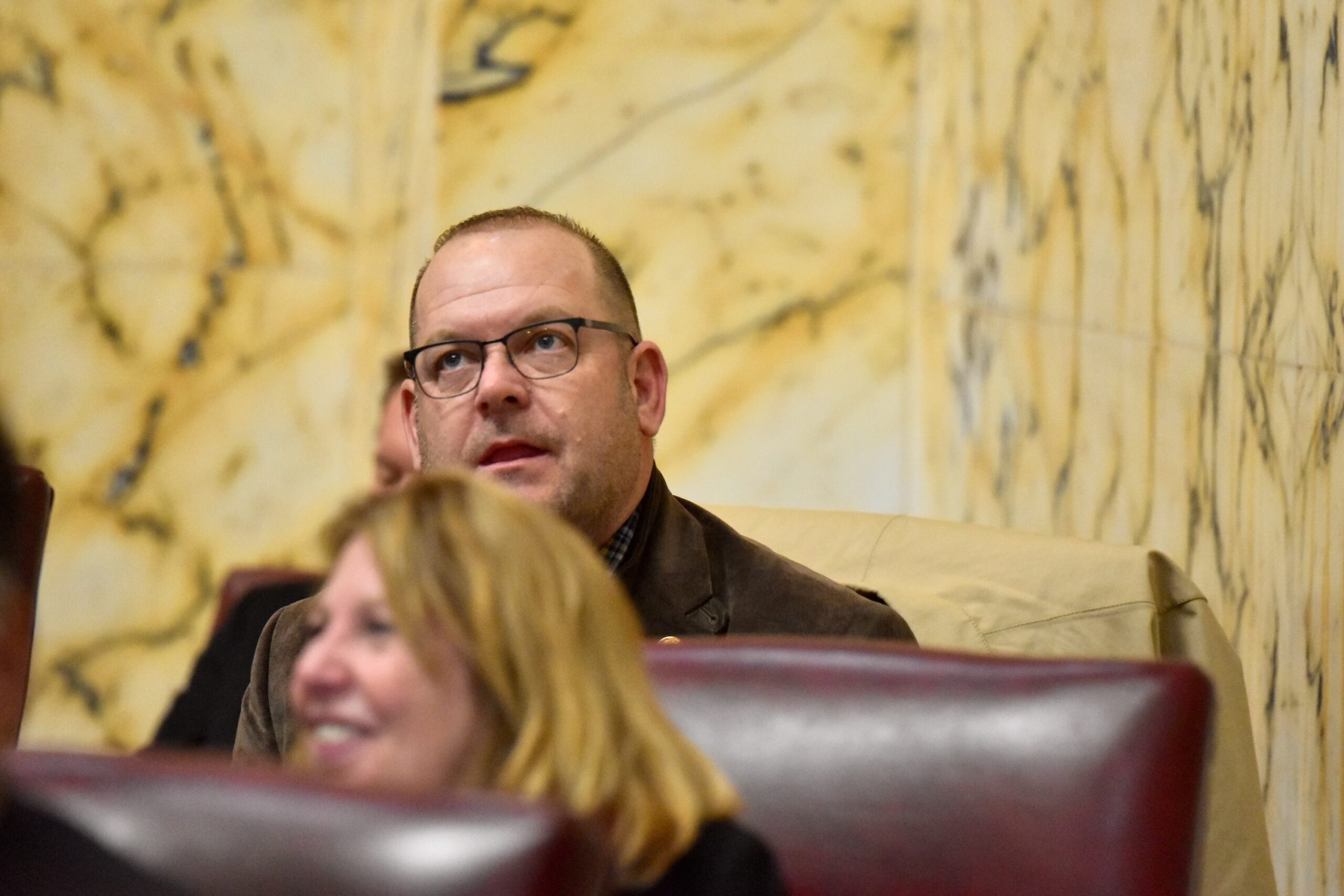Lawmakers, county officials discuss recent juvenile justice reforms and potential changes at annual meeting

The Maryland Association of Counties began its winter conference Wednesday assessing policies on climate change, transportation and parks and recreation.
The organization also known as “MACo” needed two parts to discuss juvenile justice reform at the Hyatt Regency Chesapeake Bay Hotel in Cambridge.
A one-hour discussion focused on how new laws, specifically Juvenile Justice Reform and Child Interrogation Protection Act bills passed last year, are working so far.
Laurel Police Chief Russell Hamill said the child interrogation reform has created “unintended consequences” and liability for officers to do their jobs. Part of the law states an officer “cannot conduct a custodial interrogation” of a child until an attorney has been consulted who may be retained by a parent or Office of the Public Defender.
Prior to the interrogation act, Hamill said officers were allowed to talk with youth after an alleged crime occurred and could find out more information such as whether that child is physically abused, homeless, or just hungry.
Worcester County Commissioner President Anthony Bertino Jr. (R) asked Sen. Jill Carter (D-Baltimore City), who moderated the discussion, if she and her colleagues should review and make changes to the law.
“Before we look at any potential revisions, or before we look at any tweaks, we need to ensure that everybody actually understands the law and is interpreting it accurately,” she said. “I think that if there was one flaw, it was the lack of education to all of the agencies throughout the state as to how they would perform under the law, and that has bred confusion.”
For instance, Carter, who sponsored the reform bills, said a child younger than 10 years old can never be prosecuted because youth “were found incompetent to stand trial given their inability, cognitively understand the [legal] proceedings.”
She also said an attorney should consult with a child so they can understand their Miranda rights. After speaking with an attorney, she said a child can choose to talk with an officer.
Cecil County Attorney Lawrence Scott said the legislation has decriminalized juvenile crime and the majority of people in Maryland wanted changes in juvenile justice reform.
Although Scott agreed with Hamill that the law created unintended consequences, he said, “This change is here to stay. It’s not going anywhere.”
Meanwhile, Carter moderated a second panel that showcased a few diversion programs aimed to help deter youth from the criminal justice system. Members of the Anne Arundel Police Department talked about a youth program that was also reviewed Tuesday before the House Judiciary Committee.
‘There will be consequences’
Some state lawmakers claim certain criminal justice reform policies enacted last year have decreased accountability for alleged wrongdoers.
Clyde Boatwright, president of the state Fraternal Order of Police, agrees. Last month he said the child interrogation act, with its requirement to “provide reasonable notice to a child’s parent, guardian, or custodian,” has hampered law enforcement’s ability to investigate crimes. Some state’s attorneys have made a similar complaint.
Sen. Ron Watson (D-Prince George’s) proposes amending the law to allow a parent to “waive” the requirement that a child must first speak to an attorney before talking with law enforcement. His proposal also would permit a child to decline speaking with a law enforcement representative and to speak with an attorney instead.
Another amendment Watson proposes would require parents and their child younger than 13 years old to complete counseling, parenting, or substance abuse treatment classes administered by the state Department of Social Services (DSS).
This provision would kick in only if a child is arrested on a first offense that involves the use and possession of a firearm. On a second and subsequent offense, a law enforcement official would be required to make a report to a local department of social services “for purposes of a neglect investigation.”
“A parent who fails to complete any services prescribed by DSS must appear in court and may be subjected to the imposition of a court order regarding the completion of any such services,” according to a memo from Watson. “Any violation of the court order may subject the parents to possible contempt of court and fines.”
“It’s not about mass incarceration of Black folks. It’s about regaining control of our community, setting an atmosphere of accountability, standards and expectations,” Watson said Nov. 28 during a Prince George’s County juvenile justice community meeting at Bowie State University. “If a person knows the difference between right or wrong and chooses wrong, there will be consequences. They must be held accountable.”
Watson has two co-sponsors for his proposed legislation: Sen. Chris West (R-Baltimore County) and Sen. Mary Beth Carozza (R-Lower Shore).
Carozza also proposes an amendment to the child interrogation act that would supplement a “public safety” exception for cases in which police have probable cause to believe a young person committed a “crime of violence” or a firearm offense.
According to the memo from Watson, “violent juvenile crime is so serious that the State should not tie the hands of its prosecutors by operating a system that has resulted in juveniles with knowledge of violent crimes or firearm offenses being instructed by their attorneys not to talk to those investigating the crimes.”
Carozza said in an interview Monday that public safety forums held this year throughout the state have emphasized that Marylanders care about their communities.
“There’s a perception that the crime proposals are only coming from one sector,” she said. “The support for these proposals is in every major constituency, and that is why I’m encouraged that we will be able to do something meaningful to protect our neighborhoods and our homes.”




 Creative Commons Attribution
Creative Commons Attribution